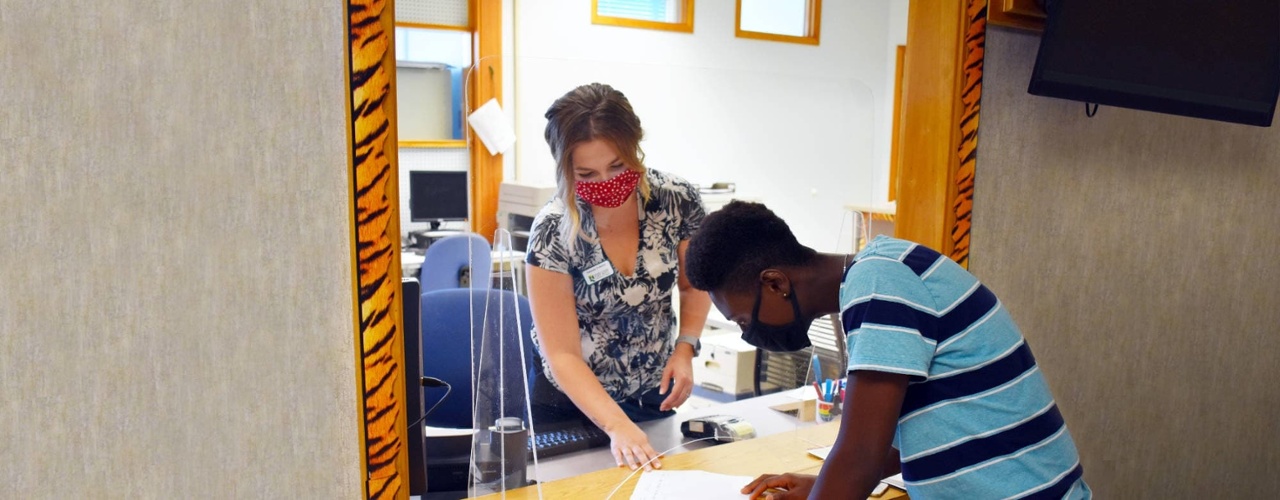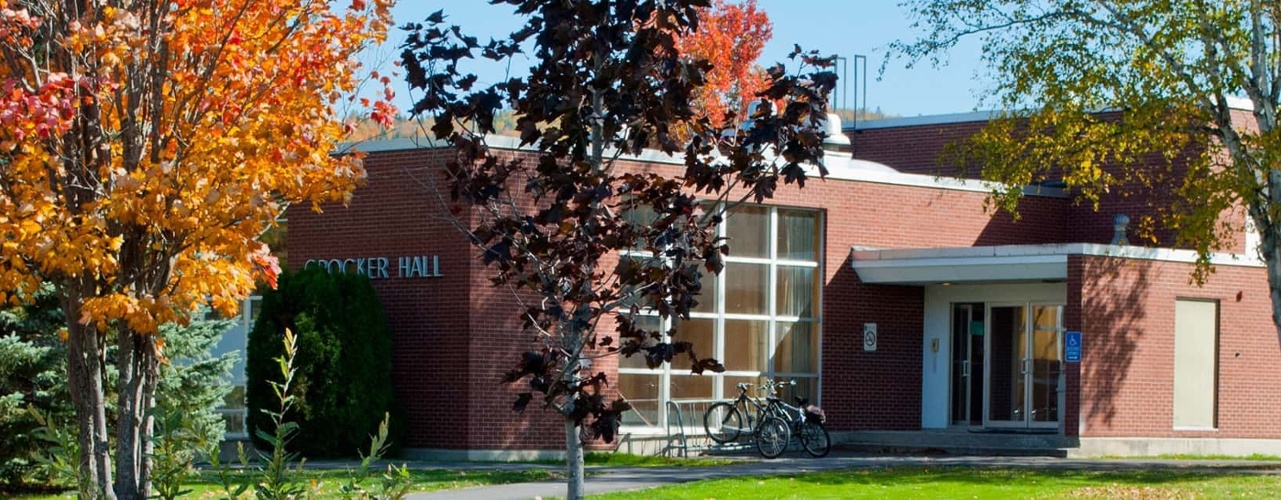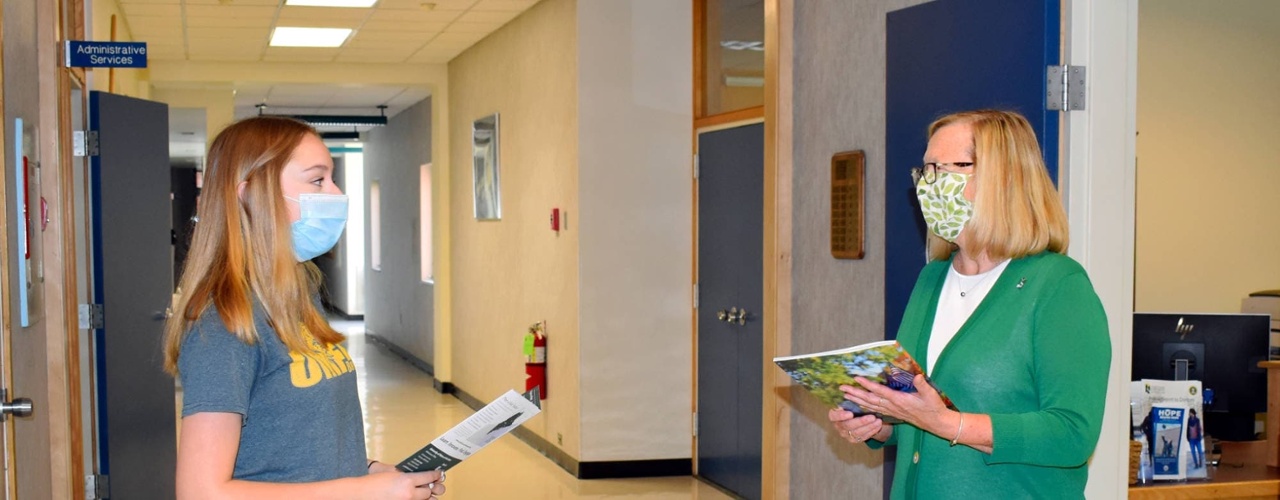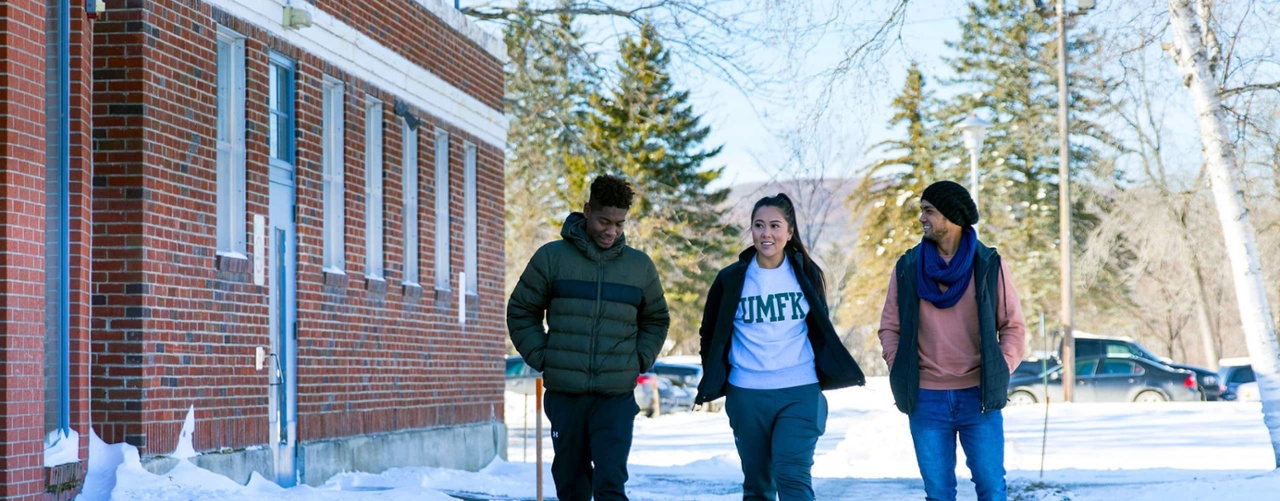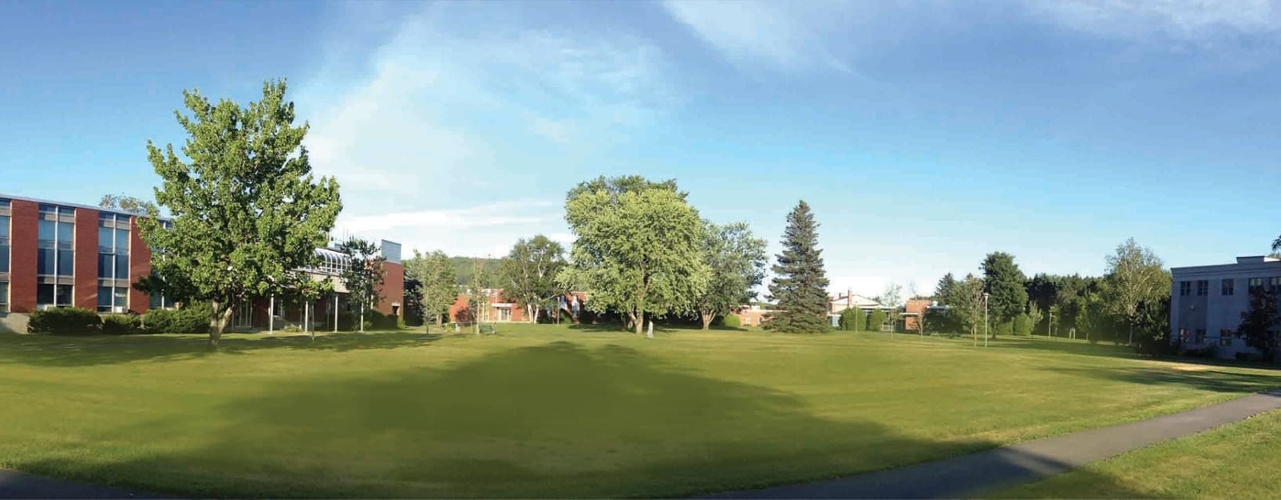
Latest News
Knowing Einstein
November 18, 2015
Note: this is an archived news release. As such, the information provided may no longer apply.
NR15083
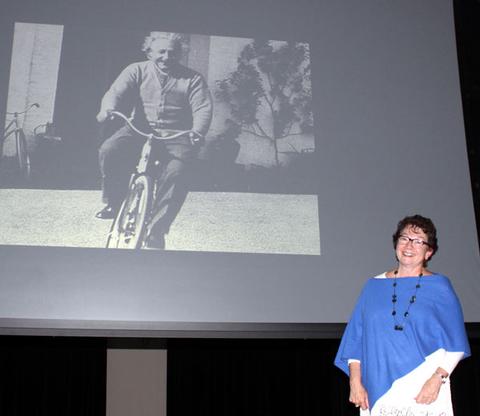
Cheryl Carlesimo presents a view of famed theoretical physicist Albert Einstein that few people have seen. At a presentation at UMFK, Carlesimo read excerpts from numerous interviews she conducted in the 1980s with people who knew Einstein both personally and professionally. She had never released the transcripts to the public prior to her presentation on November 10 and the words of Nobel Prize laureates, mathematicians, and Einstein's personal secretary gave an intimate view of his character and hints of how he saw of the world.
What was Albert Einstein like as a friend, a colleague, and a boss? With one of the greatest minds of the modern era having died sixty years ago, along with almost all of the people who knew him with any intimacy, Cheryl Carlesimo attempted to bridge the gap of time and space at a presentation that took place the University of Maine at Fort Kent on Monday, November 10.
In the second lecture of a series of presentations on Albert Einstein, Carlesimo read unpublished excerpts of interviews she conducted with people who knew Einstein at various points in his life, including Nobel laureates, Einstein's personal assistant in his home, and other colleagues.
Carlesimo conducted the interviews with approximately 20 people during the early years of the 1980s when a foreign film producer asked her to find background information for a docudrama he was creating. Among the people Carlesimo interviewed were Banesh Hoffman (1906-1986), mathematician and physicist; Nobel Prize winner Eugene Wigner (1902-1995); Helen Dukas (1896-1982), Einstein's secretary for the last 20 years of his life; and Ernst Gabor Straus (1922-1983), a German-American mathematician.
Years later, friend and Allagash writer Cathie Pelletier would mention the existence of the transcripts to Dr. Robert M. Dixon, UMFK Vice President of Academic Affairs, as the 100th anniversary of the publication of the Special Theory of Relativity approached. Dixon agreed with Pelletier that Carlessimo would bring a valuable perspective to the series of lectures the university planned.
Carlesimo is a dark-haired woman with years of eclectic experience in writing, film production, book publishing and research. At the start of the lecture, she gave brief explanations of the relationships between the persons whose words she would read and the celebrated theoretical physicist Albert Einstein. During her presentation, slides of Einstein appeared on a screen on the stage in the Fox Auditorium.
Carlessimo began with some of the more famous friends of Einstein. Banesh Hoffman collaborated with Einstein and Leopold Infeld on a paper with the title Gravitational Equations and the Problem of Motion, while Hoffman was at the Institute for Advanced Study in Princeton.
According to Hoffman, Einstein was able to put people at ease. From the transcripts of the interviews, Hoffman said,
“Well, I knocked on Einstein's door and a cheerful voice said, “Come.” Not, “Come in,” just “Come.” And I went in and I must obviously have looked terribly nervous, and there was Einstein just the way you see him in pictures. He was sitting down in a soft chair. He had on his lap a board with paper on it, and he'd been calculating and smoking. He smiled at me and said, “Put the ideas on the board.” And then he said something absolutely marvelous, he said, “Please go slowly. I don't understand things quickly.” And when Einstein said that to me, I mean, all my fears left me, and I felt as if I had known him for years.”
Later, Hoffman described his impressions of Einstein applying his mind to especially difficult problems.
And then Einstein would say, “I vill a little think.” Meaning “I will think a little.” And Infeld and I would remain absolutely silent, while Einstein took a lock of his hair in his right hand and twirled it around his finger. And he would look at infinity somewhere, and he would stand still or walk up and down. And for the life of me I haven't the slightest idea how long this went on. It may have been only a minute. It may have been fifteen minutes. But Infeld and I didn't dare make a sound, and there was Einstein, oblivious of our presence, thinking and twirling his hair, like this. And after a while, he would suddenly come back and smile and say, “We have to do such and such.” And that would solve the problem. When I tell people this I say, “Here, Infeld and I hoped that if we saw genius at work, we would know how the trick is done.” But here it was done right in front of us more than once, and it was still mysterious.
Hoffman spoke of Einstein's appreciation of the elegant beauty of the world, including mathematics. Hoffman said, “Now Einstein looked for beauty, and felt it, and it was this feeling, this sense of beauty that motivated him and led him through thickets of awful ideas that wouldn't behave themselves until he came along. After Einstein, there was more of an emphasis on beauty.”
Eugene Wigner, along with Leo Szilárd, went to Einstein's home before the United States stepped into World War II. The two successfully urged and assisted Einstein to write a letter to President Roosevelt that initiated the efforts that ultimately resulted in the development of the atomic bomb.
Wigner described trying to convince members of the U.S. Military of the importance of developing The Bomb before the Germans. Wigner said, “Einstein realized there was a danger, but the technical details, he was not interested. We explained what we think is the danger. The army colonel said, “Oh gentlemen, wars are not won by new weapons, but by the morale of the civilian population.” And I said, “Colonel, if that is the case then let's disband the army and spread that wonderful morale amongst the civilian population.””
Wigner said Einstein's greatest contribution had more to do with his impact on people than his contributions to atomic physics. “He had wonderful effects on people. In particular, he encouraged young people. He made them interested in physics, in science, and in the good of man. And that was wonderful. That was his greatest accomplishment in the United States, to encourage younger people, to inspire them, to maintain contact with them, and to be a friend.”
Carlessimo's transcripts also revealed tidbits of trivia about the genius. For example, Hoffman revealed that Einstein never wore socks, and Strauss said Einstein collected strange little gadgets he kept on a shelf. Helen Dukas said Einstein loved Italian food and piloting a small sailboat for leisure even though he could not swim.
The night's presentation provided everyone with a chance to glimpse the actual man behind the iconic images of Einstein, whether it is the posed photograph of the serious genius contemplating the wonder of it all, the picture of Einstein sticking out his tongue on his 72nd birthday, or Einstein standing in front of a chalkboard he had covered in equations. Through the words of those who knew Einstein, the brilliant mind shines through, of course, but so does his humanity, his gentle humor and his confidence that an understanding of the universe would also reveal its beauty.
Dr. David J. Batuski will present the third lecture on Thursday, December 3. He will speak on “Using General Relativity to Understand the Mysterious Dark Matter in the Universe.”
Dr. Batuski is professor of physics and astronomy at University of Maine. His research interests are in the following areas: observational cosmology; large-scale structure in the universe; dynamics of galaxy clusters and radio sources in poor galaxy clusters. In June, he conducted observations through a four-meter telescope at Cerro Tololo Observatory in Chile as part of UMO's optical large scale structure weak-gravitational lensing observing program.
Dr. Batuski earned a Ph.D. in Physics at University of New Mexico; a master's degree in astronautical engineering at Purdue University and a bachelor of science degree in engineering sciences at the United States Air Force Academy. He has been at UMO since 1976. Dr. Batuski is a member of the Maine Center for Research in STEM Education (RiSE Center).
Dr. Dixon returns to the celebration for the last lecture of the program. He will speak on “Einstein on Human and Civil Rights” on December 7.
For more information on the presentations, contact the University Relations and Alumni Affairs Office at 207-834-7557.
